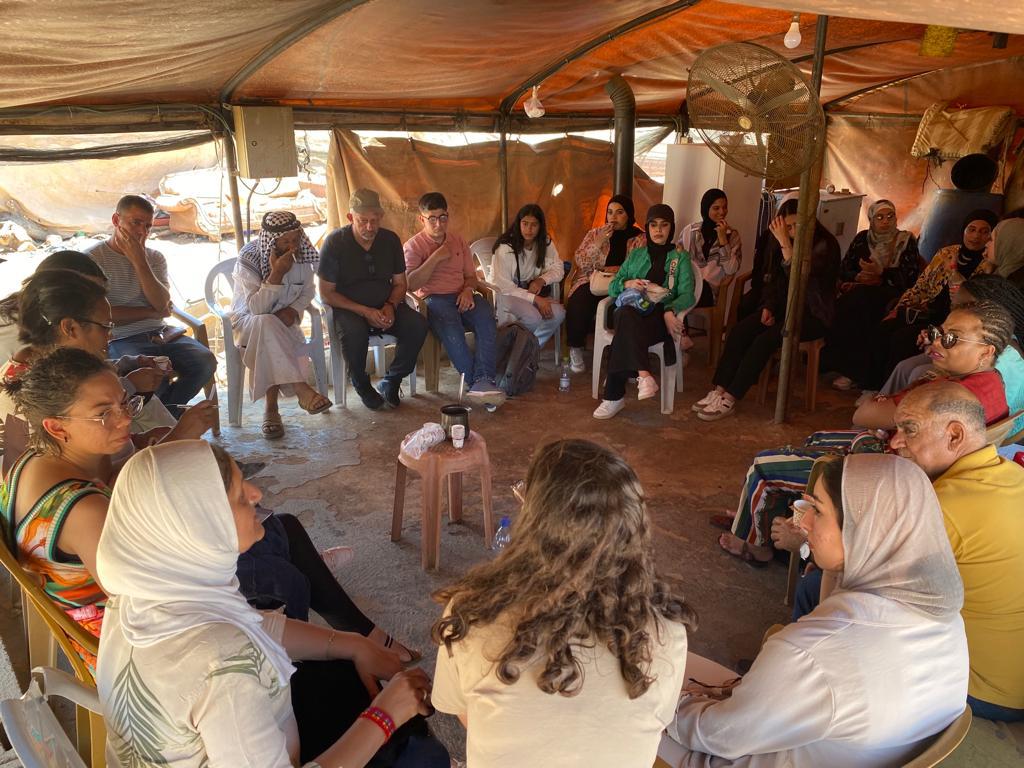
On July 25, the livestream event “Insurgent Communication: From Brazil to Palestine” was held as part of the Eighth Black July, an international initiative aimed at combating violence, the militarization of life, racism, and apartheid. In 2023, the initiative reached its eighth edition. It was founded in 2016 by mothers and family members of victims of State violence and organizations inRio de Janeiro liaising directly with social movements in other countries that also face the impacts of militarization and its consequences.
With support from the Right to Memory and Racial Justice Initiative (IDMJRacial), Maré 0800 Collective, and the Institute of Alternative Policies for the Southern Cone (PACS), the event was mediated by journalist and Black July organizer Gizele Martins and featured Barbara Amorim, a member of a Palestinian-Brazilian insurgent media collective; Thais Siqueira, founding journalist of Desenrola e Não Me Enrola which works on the outskirts of São Paulo and is part of the Coalition of Peripheral, Favela, Quilombola, and Indigenous Media; and André Vieira, Telesur correspondent in Rio de Janeiro.
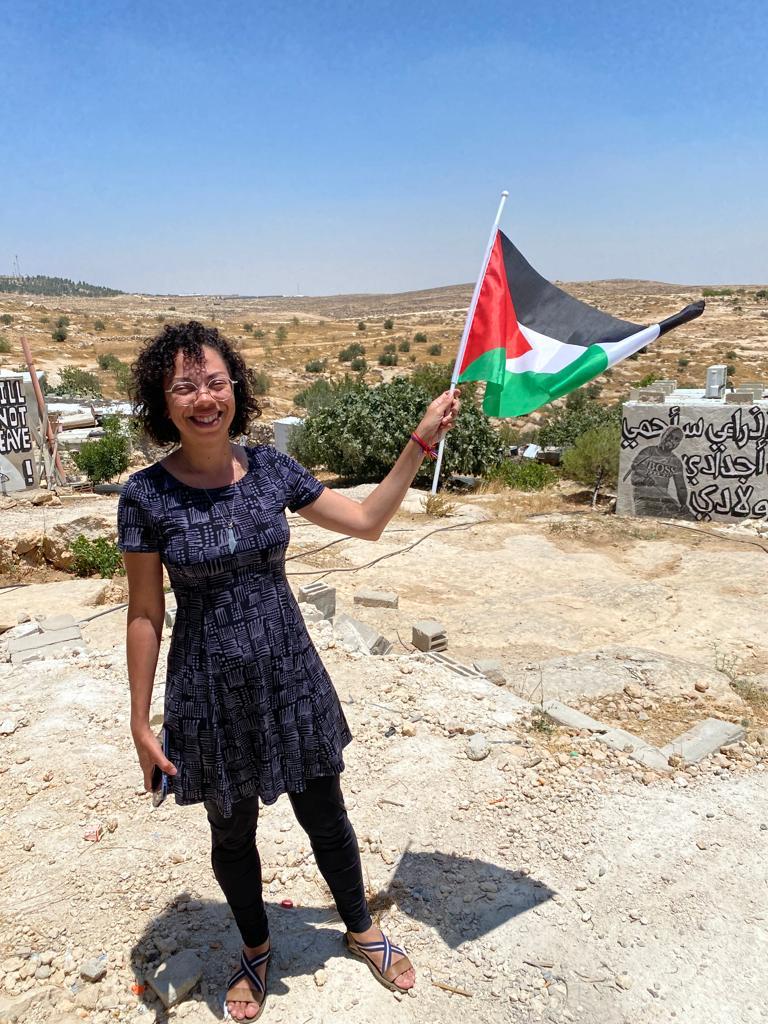
According to Gizele Martins, a resident of Complexo da Maré in Rio de Janeiro, media insurgency is about building new images of favela residents based on narratives that center stories on the favelas themselves.
“When we talk about building our memory, [which is] historically erased, we reaffirm the dissolution of stereotypes within and outside the community, especially for those who criminalize us. In addition to denouncing the militarization present in our lives.” — Gizele Martins
In 2017, Martins was invited through the organization Boycott, Divestment, and Sanctions (BDS Brasil) to represent favela movements in Rio as part of a Brazilian delegation visit to Palestine to understand and report what was happening in the country. She made her second visit to Palestine earlier this year.
“As soon as I got there, I saw the same violence experienced in Maré, but intensified by apartheid. Palestine has the weapons most sold in the world and they are the same ones that come to the favelas of Rio. There I was able to get out of my own context and understand that violence is an international State project. So journalism also needs to transcend the invisible barriers of these conflicts.” — Gizele Martins
Barbara Amorim is a member of a media project about the reality in Palestine aimed at a Brazilian audience that has been running since the 1980s. She shared the difficulty of fighting for the mainstream media to listen, even amid the massacres experienced both by people in Palestine and the favelas, whether it’s perpetrated by the State of Israel or the Brazilian State.
“Our biggest challenge is to sensitize media outlets to open up to Palestinian issues, trying to show the strong connection with Brazil. Conflicts are poorly perceived issues and face reduced visibility due to algorithms, which means we have to circumvent subtitles with numbers instead of letters. This complicates content dissemination and hinders raising awareness of this reality. At the time when simultaneous conflicts occurred in Palestine and Jacarezinho, we also identified numerous shared problems, such as inefficient Internet services and [therefore communication]. Just like us [Black, favela residents from the urban periphery in Brazil], Palestinians are arrested without much justification or rights, the Internet is cut, or access is limited, the power supply is only four hours, making any communication even more difficult. We have to reinvent everything. And we can’t overlook the persecution of journalists: in the past 22 years, 44 Palestinian media professionals have been killed on the job.” — Barbara Amorim
Telesur correspondent André Vieira explained that the similarities between the two countries are not mere coincidence.
“When we cross-checked data collected by the Fluminense Federal University’s (UFF) Study Group on the New Illegalities (GENI) regarding violence in the Greater Rio de Janeiro metropolitan region, we could see the relationship between the escalation of violence in the city and the 2014 World Cup. At that time, there was a militarization of communities and also a closer relationship between the Israeli arms industry and the Rio de Janeiro state government. The study found an upsurge and intensification of violence. This is the result when we analyze the facts. The [commercial] press does not draw a connection between these events, so it’s very significant when the struggles connect.” — André Vieira
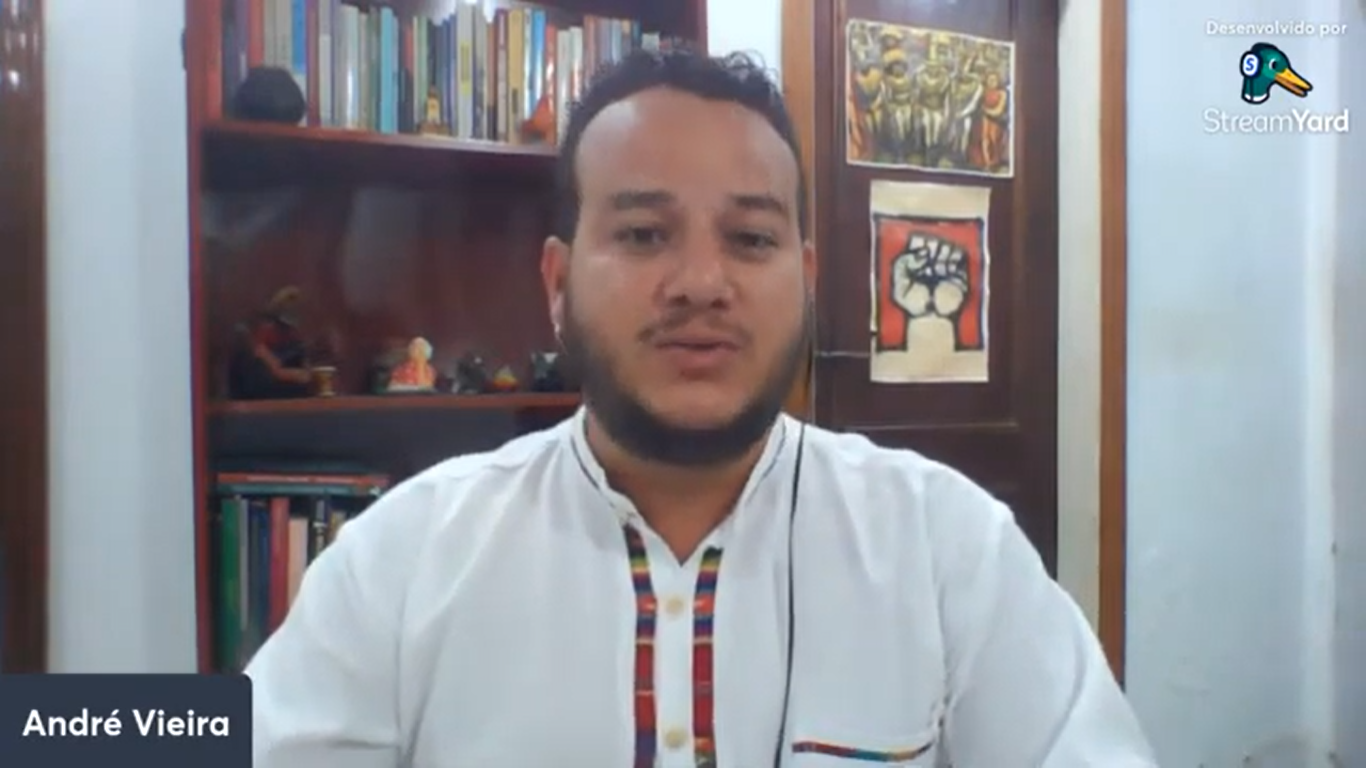
Thais Siqueira represented the Coalition of Media on its Brazil visit to Palestine earlier this year alongside Gizele Martins. She described forced evictions, neglect, and State violence as similarly present in both countries. She revealed that the same process playing out in the hyper-incarceration and genocide of Black youth in Brazil also plays out in Palestine with youth murdered and imprisoned by the Israel Defense Forces (IDF). Rather than defend, as their name claims, the IDF attack, occupy, and expropriate, and play a role in ethnic cleansing and demographic change in the region.
“During my five days there, I got to know these places, the homes of Bedouins who are being threatened with eviction in the Jordan Valley and the incarceration of Black youth from the periphery. A lot of men there have already been arrested, for various reasons. We, here in Brazil, still manage to guarantee some basic rights. In Palestine, this is not the case. Children as young as four or five are arrested! How did an already persecuted people come to persecute and exterminate another ethnic group in their territory? Does the act of defending oneself against these abuses by the Israeli people make Palestinians terrorists? If you are attacked, you need to defend yourself somehow! However, whoever can communicate holds the power… My time there brought me questions about how we can have effective attitudes in enhancing this communication to the world.” — Thais Siqueira
Siqueira also highlighted that she felt at home in Palestine and often commented to Martins how situations reminded her of where she lives on the outskirts of São Paulo—how the refugee camps, villages, and cities are similar to the favelas and urban peripheries of Brazil. She mentioned her visit to the Aida Camp in Bethlehem and the shocking realization that violations continue to be perpetrated by Israeli forces, even with UN presence on the ground.
“I was very struck by the situation in Palestinian refugee camps and cities, which reminded me a lot of the favelas and urban peripheries [of Brazil]. As soon as we enter, the situation is very similar. So much so that I remember joking with Gi Martins, ‘well, I’m home! This is the periphery for me!’… the Israeli army pointing heavy weapons at old ladies… I was struck by the murder of Palestinian youth… just like Brazil… and the incarceration of Palestinian youth struck me in relation to what happens in Brazil with Black youth from the urban periphery…. [in Brazil] over 60% of people in prison are Black men and youth from the urban periphery… in Palestine, there is the issue that almost all men have already been arrested for whatever reason… how can this kind of thing be happening, and the world not do anything? … in the Aida Refugee Camp there is a huge UN building and then I was like: ‘My God in heaven! The UN is here and nothing is done?’ These are things that impact you.” — Thais Siqueira
![Thais Siqueira is a journalist and founder of Desenrola e Não Me Enrola [Unwind and Don't Wind Me Up] Up in the urban periphery of São Paulo and part of the Coalition of Media.. Thais Siqueira is a journalist and founder of Desenrola e Não Me Enrola [Unwind and Don't Wind Me Up] in the urban periphery of São Paulo and part of the Coalition of Media.](https://rioonwatch.org/wp-content/uploads/2023/08/Thais-Siqueira-e-jornalista-e-fundadora-do-Desenrola-e-Nao-Me-Enrola-na-periferia-de-Sao-Paulo-e-parte-da-Coalizao-de-Midias.png)
“The deaths of Black men, just like Palestinians, are not tallied… here [in Brazil] because they are considered criminals… [there in Palestine] terrorists… This meeting is very important for us because it shows the strength that the collective has for people who are marginalized. The stronger they think they are, the more strength we have to break down these barriers and walls.” — Barbara Amorim
She also spoke about the systematic persecution of journalists in Palestine by the State of Israel. Amorim recalled journalist Shireen Abu Akleh, who was gunned down by Israeli soldiers in 2022 while covering protests at the Jenin Refugee Camp in the northern West Bank. A Palestinian-American journalist for Al Jazeera, Abu Akleh was crouched with other journalists behind a wall, all wearing helmets and bulletproof vests labeled “press” and yet she was shot in the head by an Israeli soldier. After the murder, even with all the international repercussions, Israel decided not to open an investigation into the case that, to this day, remains unpunished.
“If we’re discussing insurgent media and Palestine, we can’t overlook the persecution of journalists, which Israel carries out with great force and commitment. From 2000 to 2022, 44 journalists were killed by Israel while on the job. The most recent and shocking case was that of Shireen Abu Akleh, who was murdered while covering yet another massacre [perpetrated by Israel] at the Jenin Refugee Camp… she was murdered by an Israeli soldier, despite wearing full journalist protective gear. This only highlights Israel’s track record against Palestinian media, whether it is against Shireen, who worked for a commercial media outlet such as Al Jazeera, or against Palestinian grassroots journalists.” — Barbara Amorim
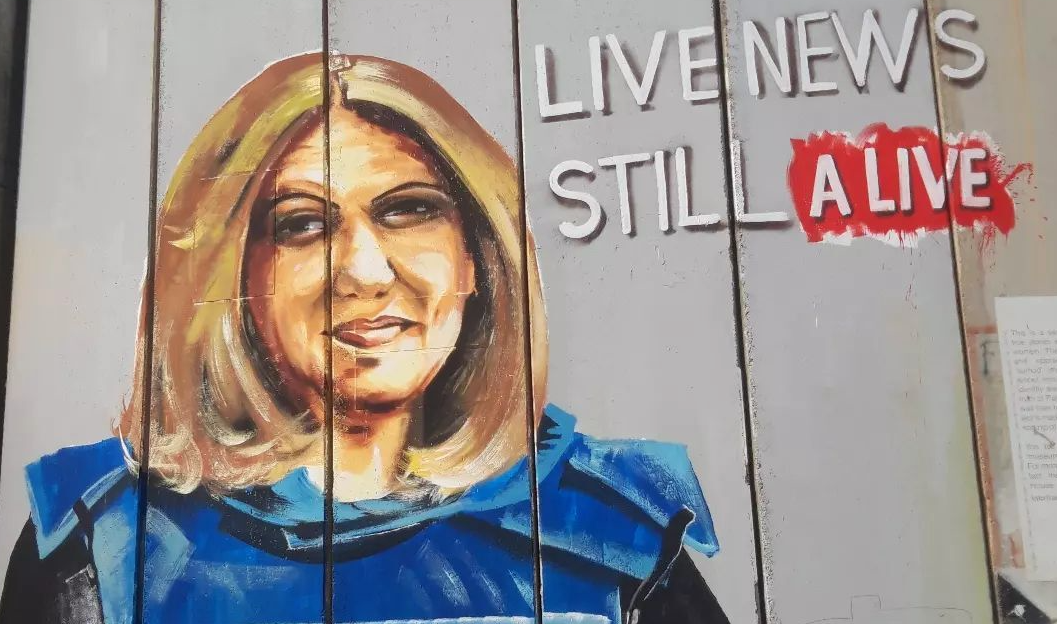
Militarization Trade, Denial of Rights, and Lack of Access
Held in April in Rio de Janeiro, the LAAD Defence and Security arms fair exhibited various products including a new armored tank by Combat Armor Defense do Brasil, created exclusively for use in Brazil.
“This fair is the biggest in the Latin American arms sector and showcased, during the event, an ad for an armored vehicle, showing scenes of violence in Palestine. The company used these images to make a case for the product’s resilience, showing that it had been tested in the worst scenarios. A very difficult reality to witness.” — André Vieira
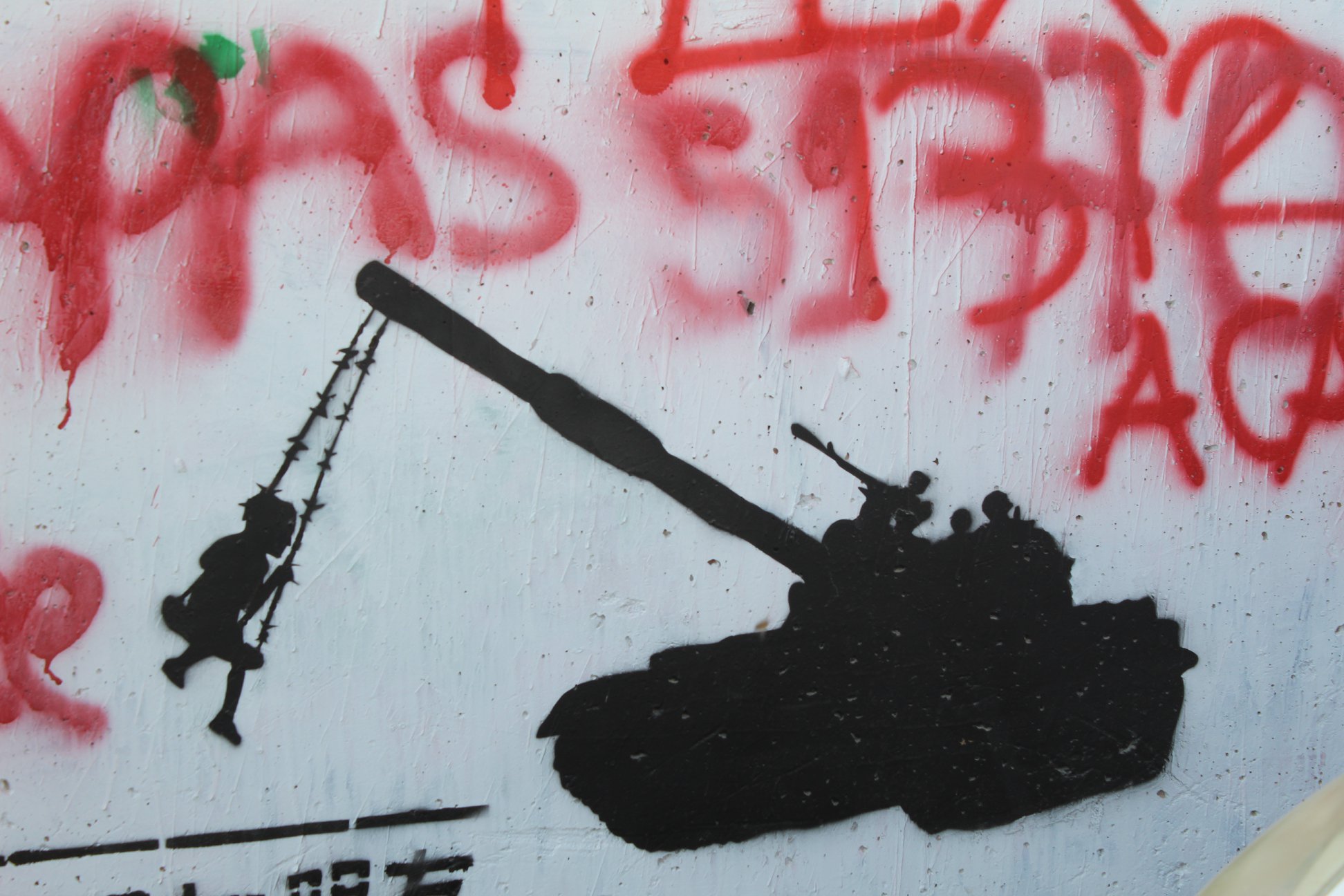
The market of violence reveals itself in other, less visible ways, such as the deprivation of fundamental rights, like the right to property and access to public services, including the Internet.
“There is digital racism [in Palestine] too, manifesting as the difficulty in accessing the Internet… We had a really hard time with photos, videos, being able to upload the content we produced… The lack of connectivity is alarming.” — Thais Siqueira
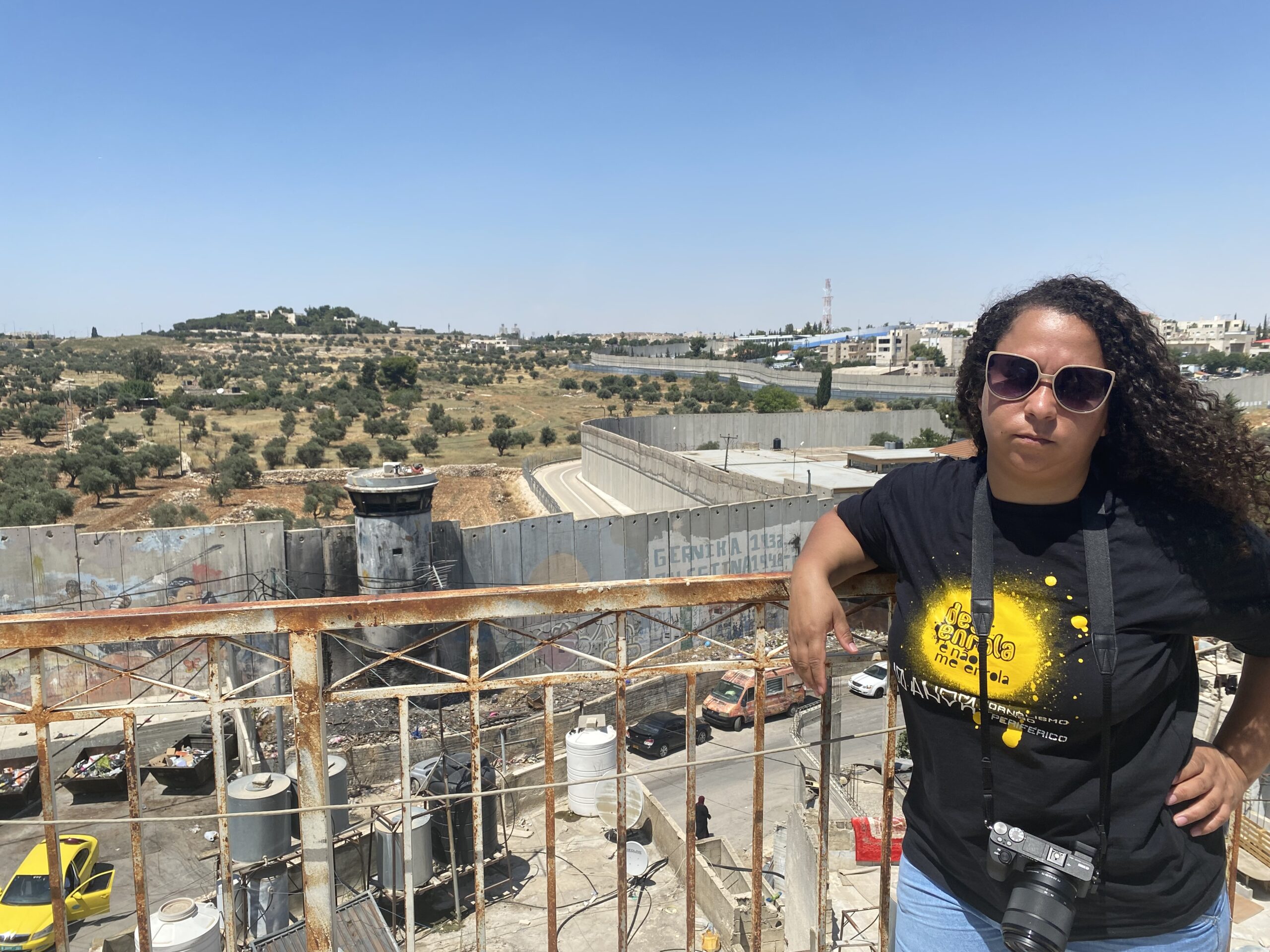
Gizele Martins experienced the same situation just before the Black July livestream. The Maré favela journalist analyzed her situation by comparing digital racism in Maré and Palestine. To her, the parallels do not end there. Martins understands that there are parallels including environmental racism and the abandonment suffered in the pandemic.
“I was here thinking about digital racism. Before I managed to join [this livestream], I tried to connect to the Internet seven times… I’m not going to stress out about the Internet because I already know how it works: it doesn’t work… throughout the whole pandemic, our Internet was cut off, right?… when we talk about environmental racism, we see a lot of other connections… During the pandemic, at my home in Maré, we went six months without water…. I remember testimonials in the Aida Refugee Camp saying that water is only available for four hours a day. In Ramallah, it’s once a week, but, for example, in Gaza [Palestinian territory with no territorial connection to the West Bank that was not visited by Martins and Siqueira because it is under Israeli blockade], nobody even knows about that situation!… Apartheid restricts everything, takes everything away from people!” — Gizele Martins
In addition, Martins told the story of a 23-year-old who has been arrested 33 times: “What childhood do these people have? The same in Brazil.” Finally, she invited participants to suggest possible ways to overcome the oppression of colonial, racist, and militarized systems in Brazil and Palestine.
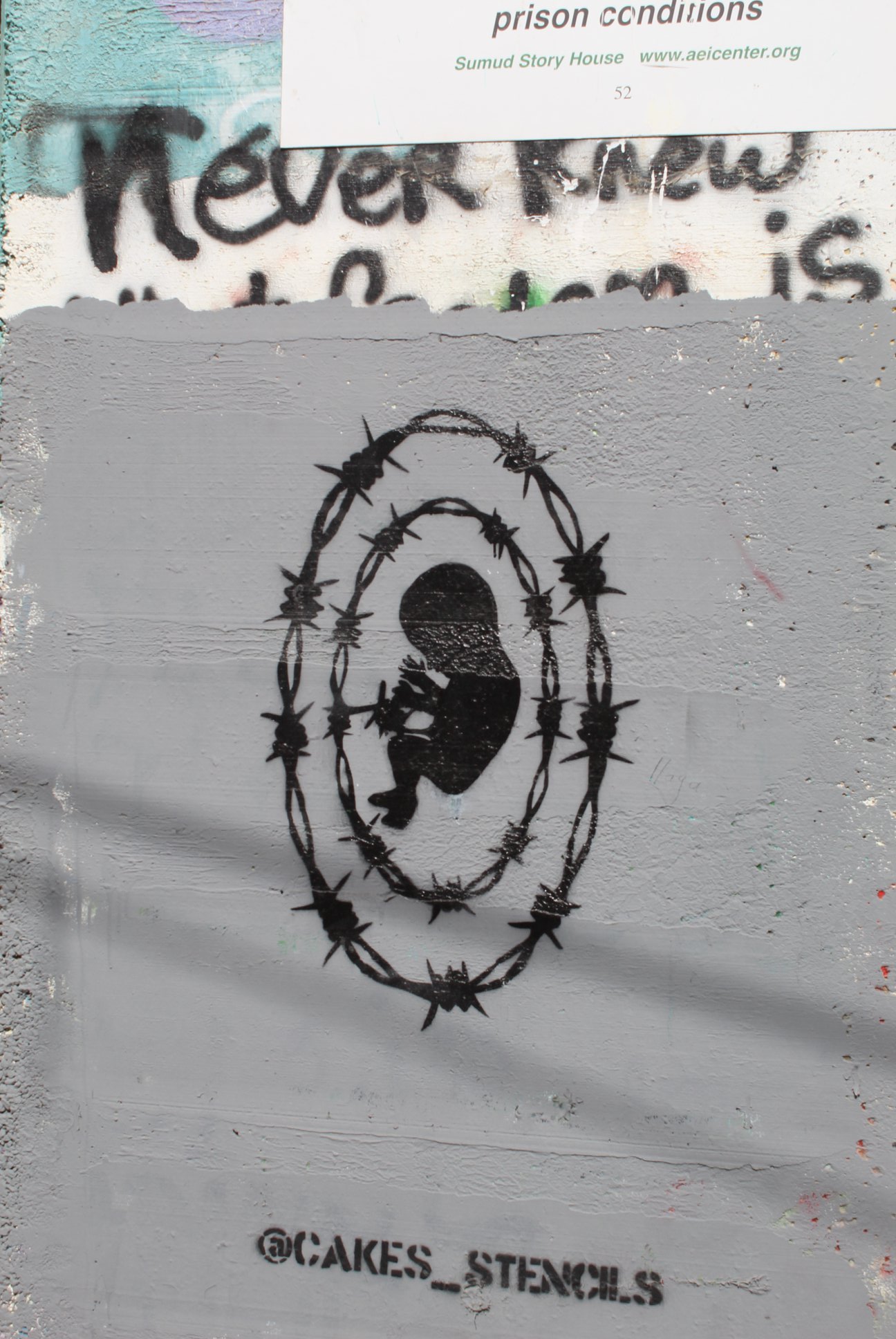
For Barbara Amorim, persistent insurgent media work and strengthening of networks increase the chance of echoing this message from the point of view of local communities.
“Our struggle is one… against an oppressive system… that tries to crush the life and power of these people… When we dissociate ourselves from stereotypes, we can see what these people are and what they can add… The struggle of this community has everything to do with people from the favelas; the oppression is the same, we have to fight for these spaces… we need to fight for bridges to be built. So that the Palestinian [Arab] community in Brazil—and this is a criticism of mine—understands that their struggle has everything to do with the struggle of people from the favelas. There’s an important class issue we need to overcome… people have a hard time grasping that the oppression we face here is the same as what’s happening there… this encouragement from us to each other, strengthening each other, and spreading the word helps us make this world better: without oppression, without apartheid, without a wall.” — Barbara Amorim
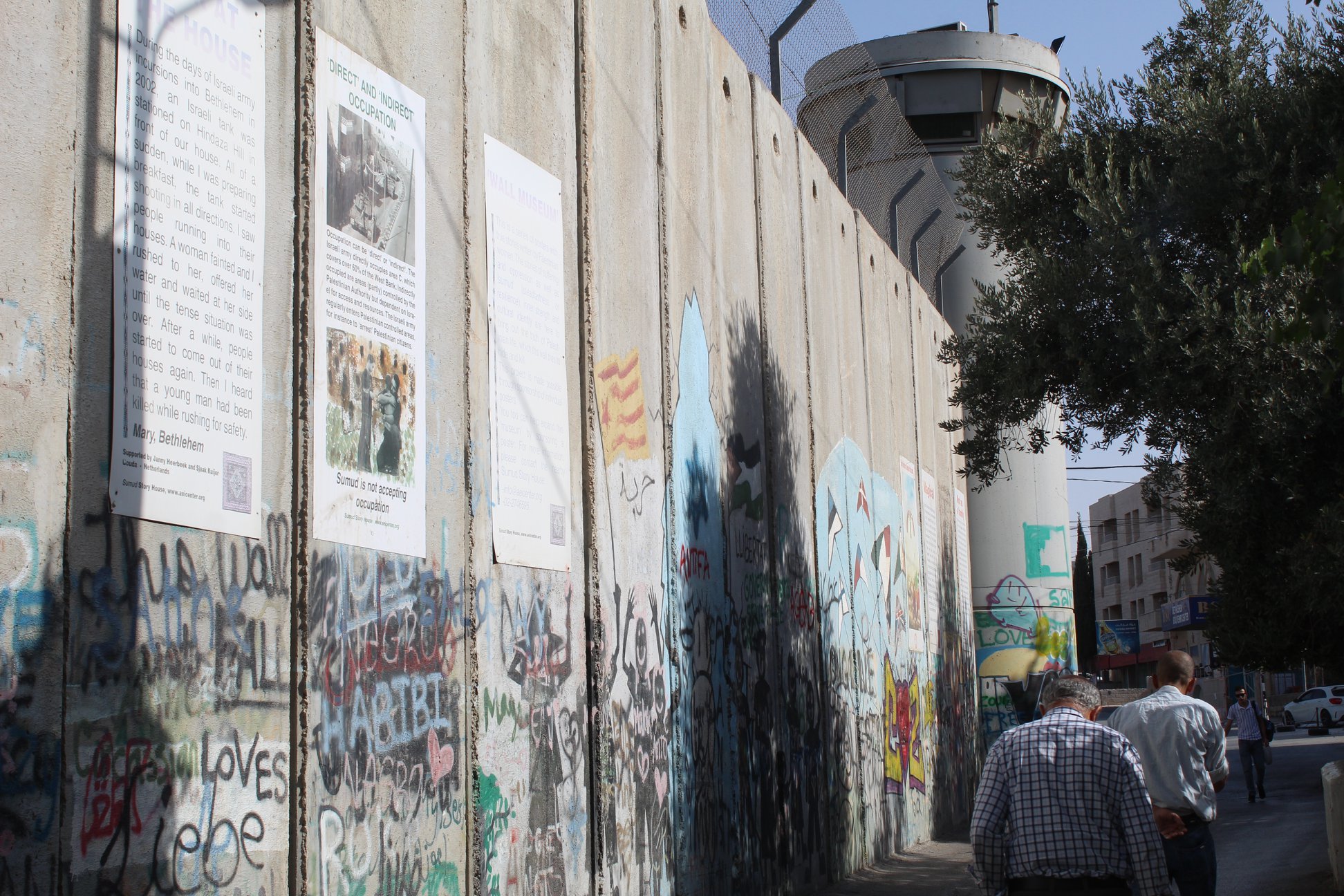
André Viera expressed that it is everyone’s role to pressure governments and international organizations to change their positions and hold perpetrators of human rights violations to account. For him, solidarity is the main weapon for building possibilities to overcome the situations in Brazil and Palestine.
“We have to demand from our governments, in defense of the Palestinian people… [and] a more assertive stance from the UN… The importance of solidarity is enormous, from supporting others to sharing people’s experiences and helping in the resistance… How this solidarity strengthens those being supportive, too. How your trip to Palestine strengthens this struggle here… solidarity is what will transform things, what will give us strength, and which cannot be lacking in any way. It is the element that endures when others are no longer there, no longer exist, solidarity is what [allows for] resistance, until the final moment if necessary. So, I think it is important to show these examples of solidarity so other people can understand, engage more with this reality, and even contribute.” — André Vieira
Thais Siqueira closed with a reflection comparing the military dictatorship in Brazil to Israel’s military occupation of Palestine and defending the full right to life in Palestine and Brazil.
“We passed through several checkpoints, Israeli army checkpoints, heavily armed… they were extremely tense moments for us… just as the military dictatorship in Brazil was ugly, undemocratic, not transformative of lives, and did not favor the people, what’s happening in Palestine, what Israel does with Palestinians, does not favor the people of Palestine. It only favors people who want to dominate a land that does not belong to them… I would like to close by talking about assurances, about thinking of ways of communicating, based on our activities, the assurance of rights, the right to come and go, the right to land, the right to live—and not [just] survive—the right to life!… basically, when we talk about the Palestinian people today, and when we live in peripheral territories, we are talking about the right to life.” — Thais Siqueira
And then, closing the 8th Black July, Gizele Martins reinforced Vieira and Siqueira’s statements about the role of solidarity in the struggle for the right to life. She said that insurgent media is a means to achieving different futures for Brazil and Palestine.
“What unites us from Palestine to Maré, from Palestine to Capão Redondo, from Palestine to Maceió, is the struggle for the right to life, the right to land, the right to air, the right to eat well, the right to live, which have been taken away from us… But, as André said, there is something they will not take away from us, which is this sense of solidarity, of a people, of communion… this coming together of insurgent media.” — Gizele Martins
Watch the 8th Black July [in Portuguese]:
About the author: Amanda Baroni Lopes is a journalism student at Unicarioca and part of the 1st Journalism Laboratory of Maré community newspaper Maré de Notícias. She has two blogs: AhManda Notícias, where she covers all kinds of content, and Hip Hop Docs about breakdancing in Brazil. She is the author of the Anti-Harassment Guide on Breaking, a handbook that explains what is and isn’t harassment to the Hip Hop audience and provides guidance on what to do in these situations. Lopes is from Morro do Timbau and currently lives in Nova Holanda, both favelas within the larger Maré favela complex.
